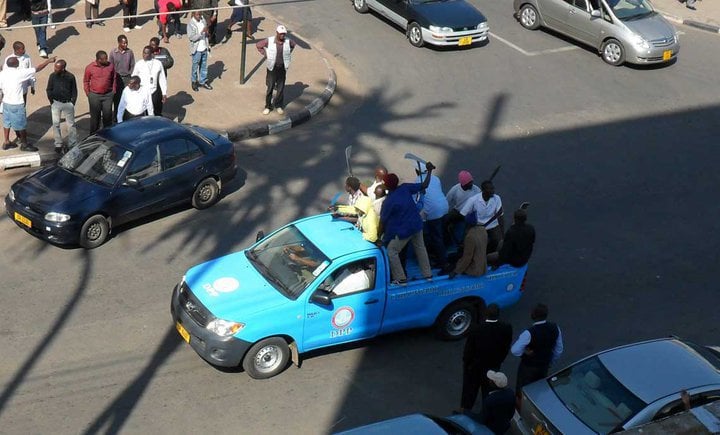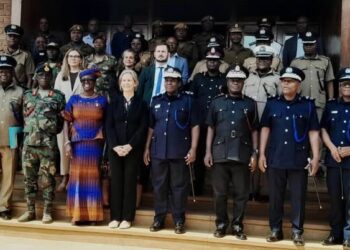A senior Democratic Progressive Party (DPP) insider has lifted the lid on what they call a “bold and unapologetic roadmap” for Peter Mutharika’s return to power, a confidential plan designed to mirror President Donald Trump’s aggressive second-term launch.
The strategy, they say, is built around swift executive orders that will reshape Malawi’s governance, education, and justice systems from the moment Mutharika is sworn in.
“This is not business as usual,” the source said. “It’s a decisive reset. We’re not coming back to negotiate; we’re coming back to govern.”

Quota System Returns, “To Restore Balance”
At the heart of the plan is the reintroduction of the quota system for public secondary school and university admissions. The insider insists it’s about restoring regional equity and ensuring that “no part of the country is left behind.”
But critics say the move is anything but balanced. The quota system has long been accused of punishing high-performing students from the Northern Regions, a part of the country the DPP has been repeatedly accused of treating with pathological dislike. Education advocates argue that the policy is not just unfair, but deliberately designed to suppress academic excellence from the North.
The consequences have been devastating. The system has been criticised for lowering academic standards nationwide, resulting in graduates who struggle with basic communication, fail to excel in their fields, and underperform in the workplace. Mental health experts say the policy has contributed to depression, anxiety, and even suicide among students denied access despite top grades.
And it doesn’t stop at schools. The insider confirmed the quota system will also apply to public sector hiring, with orders to ensure “no single region dominates” the civil service. Supporters call it a corrective measure. Opponents call it a death blow to meritocracy and a thinly veiled attempt to sideline the North.

Presidential Pardons, “We Won’t Govern from Courtrooms”
The plan also includes sweeping presidential pardons to pardon DPP allies currently facing criminal charges, including three of the party’s own vice presidents.
“We cannot have DPP senior ministers answering charges for criminal offences while we are in government,” the insider said, defending the move as necessary for stability.
The list includes:
- Joseph Mwanamveka, DPP Vice President (Southern Region), is facing charges of abuse of office and financial misconduct linked to the Salima Sugar Company
- Jappie Mhango, DPP Vice President (Northern Region), was formally charged with misuse of public office and providing false information to the Anti-Corruption Bureau
- Alfred Gangata, DPP Vice President (Central Region), charged with obtaining a Malawi School Certificate through fraudulent means, bribery, and multiple tax offences
- Norman Chisale, unexplained wealth, murder of Issa Njaunju and forging academic credentials
- Dr. Collins Magalasi, procurement deals at MERA and abuse of office
- Peter Mukhito, cement gate and the murder of Issa Njaunju
- Jean Mathanga, abuse of office and corruption at Escom
- Rosa Mbilizi, abuse of office at the Malawi Revenue Authority
- Jean Mathanga & husband, procurement and governance irregularities
- Shadreck Namalomba, tax-related offences
- Justice Lloyd Muhara, abuse of office and interference in governance
- Cliff Chiunda, procurement irregularities
- Charles Mchacha, corruption, verbal abuse of a journalist, and illegal land deals
- Symon Vuwa Kaunda, implicated in the same land scandal
Legal experts warn that such pardons would undermine the rule of law and send a dangerous message, that political loyalty trumps accountability.
Relocating Power, “Bringing Government Closer to the DPP’s Stronghold”
The insider also confirmed plans to relocate key government agencies from Lilongwe back to Blantyre, reversing moves made under the current administration to centralise services and improve access for all Malawians.
Agencies targeted include the Malawi Electoral Commission (MEC), Malawi Communications Regulatory Authority (MACRA), the Immigration Department, and the Malawi Housing Corporation (MHC). These institutions were previously moved from Blantyre and Zomba to Lilongwe to reduce travel costs, improve coordination with ministries, and ensure equal access from all regions.
Critics argue that the reversal is not about efficiency, but rather about bringing government agencies into the heart of the DPP’s Southern Region stronghold, simply because that’s where the party feels most secure. The move would disrupt operations, politicise the bureaucracy, and concentrate power in one corner of the country at the expense of national service delivery.

The Stakes: Stability vs. Chaos
As the campaign enters its final stretch, voters are staring down two radically different futures. On one side, Peter Mutharika’s camp promises sweeping executive orders, mass pardons, and a return to divisive policies like the quota system. On the other, MCP President Lazarus Chakwera stands as a symbol of stability, reform, and national unity.
With a proven track record of steady leadership through crises, a commitment to meritocracy, and a vision rooted in progress rather than revenge, Chakwera is increasingly seen as the candidate who can protect Malawi from political chaos and keep the country moving forward.
In the words of one political analyst, “This election isn’t just about who wins, it’s about whether Malawi chooses stability or slips back into chaos.”







